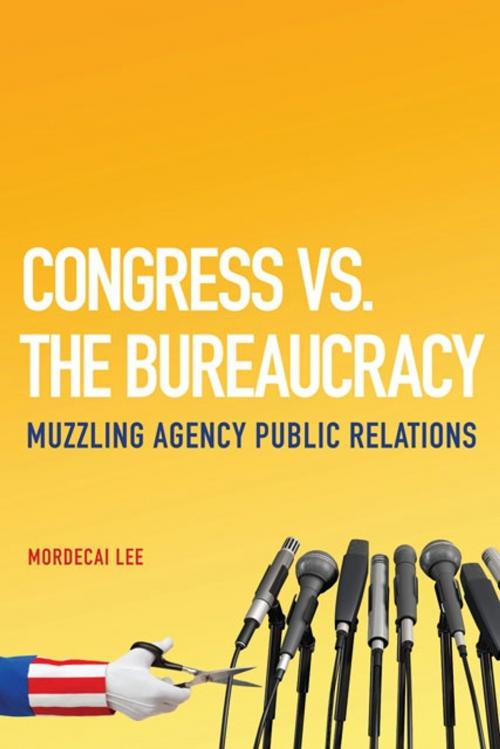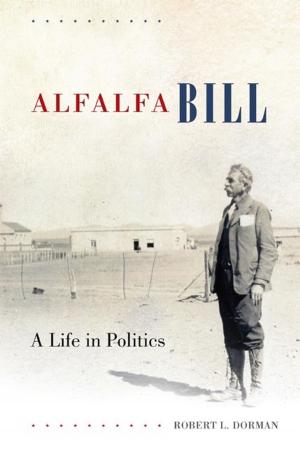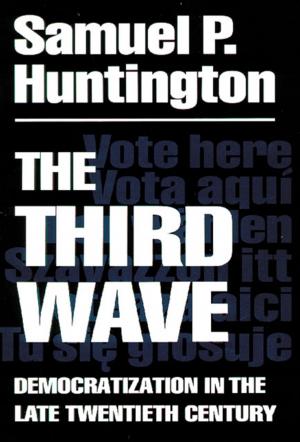Congress vs. the Bureaucracy
Muzzling Agency Public Relations
Nonfiction, Social & Cultural Studies, Political Science, Government| Author: | Mordecai Lee | ISBN: | 9780806184494 |
| Publisher: | University of Oklahoma Press | Publication: | December 7, 2011 |
| Imprint: | University of Oklahoma Press | Language: | English |
| Author: | Mordecai Lee |
| ISBN: | 9780806184494 |
| Publisher: | University of Oklahoma Press |
| Publication: | December 7, 2011 |
| Imprint: | University of Oklahoma Press |
| Language: | English |
Government bureaucracy is something Americans have long loved to hate. Yet despite this general antipathy, some federal agencies have been wildly successful in cultivating the people’s favor. Take, for instance, the U.S. Forest Service and its still-popular Smokey Bear campaign. The agency early on gained a foothold in the public’s esteem when President Theodore Roosevelt championed its conservation policies and Forest Service press releases led to favorable coverage and further goodwill.
Congress has rarely approved of such bureaucratic independence. In Congress vs. the Bureaucracy, political scientist Mordecai Lee—who has served as a legislative assistant on Capitol Hill and as a state senator—explores a century of congressional efforts to prevent government agencies from gaining support for their initiatives by communicating directly with the public.
Through detailed case studies, Lee shows how federal agencies have used increasingly sophisticated publicity techniques to muster support for their activities—while Congress has passed laws to counter those PR efforts. The author first traces congressional resistance to Roosevelt’s campaigns to rally popular support for the Panama Canal project, then discusses the Forest Service, the War Department, the Census Bureau, and the Department of Agriculture. Lee’s analysis of more recent legislative bans on agency publicity in the George W. Bush administration reveals that political battles over PR persist to this day. Ultimately, despite Congress’s attempts to muzzle agency public relations, the bureaucracy usually wins.
Opponents of agency PR have traditionally condemned it as propaganda, a sign of a mushrooming, self-serving bureaucracy, and a waste of taxpayer dollars. For government agencies, though, communication with the public is crucial to implementing their missions and surviving. In Congress vs. the Bureaucracy, Lee argues these conflicts are in fact healthy for America. They reflect a struggle for autonomy that shows our government’s system of checks and balances to be alive and working well.
Government bureaucracy is something Americans have long loved to hate. Yet despite this general antipathy, some federal agencies have been wildly successful in cultivating the people’s favor. Take, for instance, the U.S. Forest Service and its still-popular Smokey Bear campaign. The agency early on gained a foothold in the public’s esteem when President Theodore Roosevelt championed its conservation policies and Forest Service press releases led to favorable coverage and further goodwill.
Congress has rarely approved of such bureaucratic independence. In Congress vs. the Bureaucracy, political scientist Mordecai Lee—who has served as a legislative assistant on Capitol Hill and as a state senator—explores a century of congressional efforts to prevent government agencies from gaining support for their initiatives by communicating directly with the public.
Through detailed case studies, Lee shows how federal agencies have used increasingly sophisticated publicity techniques to muster support for their activities—while Congress has passed laws to counter those PR efforts. The author first traces congressional resistance to Roosevelt’s campaigns to rally popular support for the Panama Canal project, then discusses the Forest Service, the War Department, the Census Bureau, and the Department of Agriculture. Lee’s analysis of more recent legislative bans on agency publicity in the George W. Bush administration reveals that political battles over PR persist to this day. Ultimately, despite Congress’s attempts to muzzle agency public relations, the bureaucracy usually wins.
Opponents of agency PR have traditionally condemned it as propaganda, a sign of a mushrooming, self-serving bureaucracy, and a waste of taxpayer dollars. For government agencies, though, communication with the public is crucial to implementing their missions and surviving. In Congress vs. the Bureaucracy, Lee argues these conflicts are in fact healthy for America. They reflect a struggle for autonomy that shows our government’s system of checks and balances to be alive and working well.















